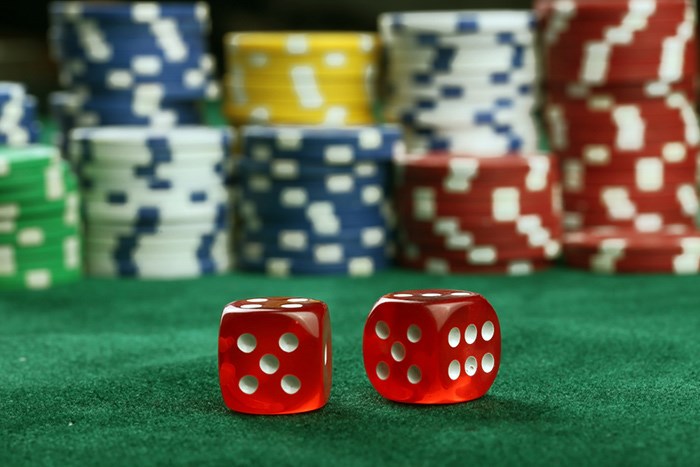The odds of this happening to any player are more than 33 million to one.
 Casino/Shutterstock
Casino/Shutterstock
Katalinic’s prize allowed the British Columbia Lottery Corp. (BCLC) an opportunity for a “feel good” story after a couple of years that can only be described as shaky.
There was the discovery of a bin filled with playing cards and private documents that had not been appropriately disposed of, as well as some unwanted attention for a Vancouver casino over allegations of discrimination. In addition, the dire spectacle of money laundering that was caught on video in a casino ultimately led to the May 2019 announcement of a public inquiry by the provincial government – a process that was backed at the time by 86% of the province’s residents.
Research Co. asked British Columbians earlier this month about their gambling habits and perceptions, and found a public that likes to play, has an erroneous perspective about actual chances and requests more action to deal with the adverse effects of gaming.
The preferred gambling activity for British Columbians is buying a lottery ticket (58% have done this in the past year), followed closely by purchases of Scratch & Win tickets (48%). More than a third of the province’s residents (36%) have attended a casino in the past year, and almost one in five (19%) have visited the PlayNow.com website.
Other activities are not as widely embraced, such as playing poker or other card games online, (12%) placing bets on sporting events with friends or relatives (10%), betting on sporting events through Sports Action (9%) or betting on a horse race (5%).
Just under one in four British Columbians (22%) did not participate in any of these activities over the past year, including 26% of women and 28% of residents aged 18 to 34.
There are some significant regional discrepancies. While the proportion of non-gamblers stands at 29% in the Fraser Valley and 24% in Metro Vancouver, it drops below 20% in three regions: northern B.C. (18%), Vancouver Island (17%) and southern B.C. (12%).
British Columbians who bought lottery tickets in the province were asked about their expectations. Two in five (41%) concede that they do not foresee winning any prize when they purchase a ticket, but a similar proportion (38%) anticipates getting a small prize.
One in five lottery ticket buyers (21%) say they expect to win a big prize – including a particularly eclectic mix of residents: 26% of those aged 35 to 54, 33% of southern B.C. residents and 37% of voters who cast ballots for the BC Green Party in the 2017 provincial election.
In case you are wondering, the odds of winning any prize, no matter how small, on LottoMax are one in seven – significantly superior to the chances of scoring a payoff the size of Katalinic’s jackpot but not as encouraging as some respondents to the survey would assume.
Casinos have been remarkably controversial in recent years, particularly in Metro Vancouver, where some provincial politicians exerted pressure on their municipal counterparts in an effort to see permits approved. In spite of this, British Columbians of all ages, regions and political stripes see more benefits than hindrances.
Three in five residents (61%) believe casinos “definitely” or “probably” bring tourism dollars and create jobs, while a significantly smaller proportion (27%) regard casinos as a cause of gambling addiction, crime and traffic congestion.
On this issue, the views of BC Liberal voters are strikingly similar to those of BC Green Party supporters, with 69% and 68% respectively believing casinos bring economic benefits to British Columbia. For those who voted for the governing BC NDP in 2017, the numbers are slightly lower (62%).
On the issue of gambling as a whole, British Columbians are open-minded. Two-thirds of residents (67%) believe it is the right of the individual to gamble regardless of the consequences – a view espoused by 72% of men and 70% of residents aged 18 to 34.
Still, the same proportion of British Columbians (67%) call for the government to do more to deal with the negative effects of gambling – including 70% of residents aged 55 and over and 77% of residents of southern B.C.
Almost nine in 10 British Columbians (88%) say that people will continue to find ways to gamble, even if it were made illegal. With total revenues from commercial gambling in the province, excluding horse racing, reaching $2.9 billion in 2014-15, there is definitely little appetite to turn gambling into an underground activity.
Mario Canseco is president of Research Co.
Results are based on an online study conducted September 11–14, 2019, among 800 adults in British Columbia. The data has been statistically weighted according to Canadian census figures for age, gender and region in British Columbia. The margin of error, which measures sample variability, is plus or minus 3.5 percentage points, 19 times out of 20.


